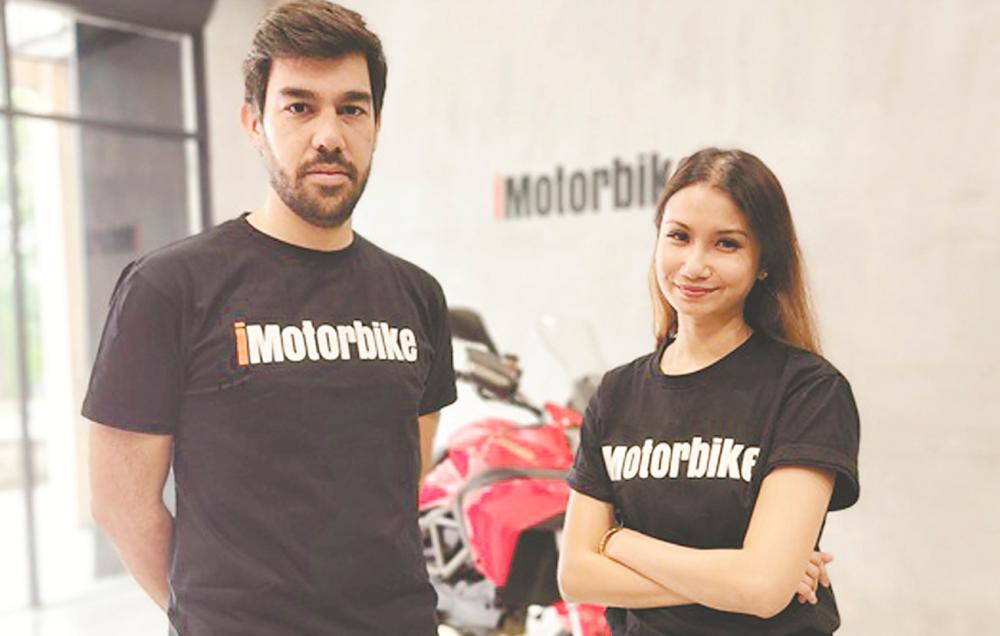KUALA LUMPUR: The global automotive industry is accelerating its shift towards sustainability as the impacts of climate change become increasingly urgent, with transformation driven by stringent environmental regulations, evolving consumer expectations, and the overarching goal of achieving net-zero emissions.
Automakers worldwide are rethinking their production processes to reduce environmental impact, focusing on electric vehicles and adopting sustainable economic and operational principles.
In Malaysia, the automotive sector is embracing this global trend by investing in green technologies, including EV production and energy-efficient manufacturing practices.
However, beyond EVs, the motorcycle industry faces unique challenges in adapting to growing consumer demands for sustainability.
“There is a rising expectation for environmentally friendly practices, but at the same time, consumers also demand high-quality, reliable, and safe products,” Gil Carmo, co-founder and CEO of iMotorbike, said in an interview with SunBiz.
“Balancing these priorities is no easy feat, particularly in a market where affordability often outweighs sustainability.”
Carmo believes the solution lies in adopting circular economy principles, which focus on reducing waste and extending product lifecycles. At iMotorbike, this means encouraging trade-ins, reusing parts wherever feasible, and investing in eco-friendly refurbishing technologies.
“Sustainability and quality are not opposing forces; they can work hand in hand when supported by the right processes and a genuine commitment to the environment,” he said.
Carmo highlighted the potential of preowned motorcycles as part of this sustainable strategy.
Refurbishing and reselling secondhand bikes reduce waste, and affordable transport options are made accessible to more consumers.
“One of the key ways to leverage circular economy principles is by extending the lifecycle of vehicles,” Carmo said.
“Older or damaged motorcycles can be salvaged for parts, which can then be refurbished and sold. This approach lowers production costs, reduces dependence on raw materials, and creates new revenue streams while minimising environmental impact.”
Promoting circular economy practices also strengthens the local ecosystem. Carmo emphasised the importance of supporting local businesses and suppliers involved in parts recovery, repairs, and refurbishment. This community-driven approach can enhance the entire supply chain.
Collaboration within the industry is equally crucial.
Carmo underscored the need for partnerships with recycling facilities and green technology providers to ensure materials that cannot be reused are responsibly recycled. “This kind of cooperation helps close the loop and contributes to the long-term sustainability of the automotive sector.”
Looking ahead, Carmo is optimistic about the future of Malaysia’s transport industry. “We are already seeing early signs of change, and these trends will only accelerate.”
As eco-conscious practices gain traction, Carmo anticipates growing consumer demand for motorcycles that align with green standards through electric models, reduced emissions, or greater fuel efficiency.
He also sees increased trust in preowned vehicles, particularly through platforms such as iMotorbike, which offer a safe and transparent buying experience.
“Consumers are realising that buying secondhand is not just a smart financial decision but also a sustainable one,” Carmo said. “Preowned motorcycles offer an affordable entry point for those who want to contribute to a greener future without the higher costs of new vehicles or EVs.”
By embracing these principles, Malaysia’s automotive sector is poised to lead the way in sustainability, balancing economic viability with environmental responsibility.
“Additionally, with green infrastructure becoming a focus, such as more charging stations for electric vehicles and better urban planning, it is likely that the consumer mindset will shift towards embracing alternative transportation options that support environmental goals- where there might be a rise in motorcycle-sharing schemes or increased interest in short-term rentals,“ Carmo said.
He said iMotorbike is keen to explore ways to scale sustainability-focused initiatives, including expanding the availability of preowned motorcycles. “We recognise that operational efficiency is crucial, and we are open to optimising inventory management, streamlining the refurbishment process as well as collaborating with trusted suppliers who align with our sustainability objectives.”
The motorcycling industry can work closely with government bodies in a few key areas to support Malaysia’s green economic agenda and Budget 2025, Carmo said.
“One important step is to get involved in advocacy – this is specifically where we can work together to create policies that encourage the use of preowned motorcycles as a more environmentally friendly option.”









